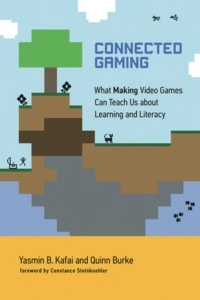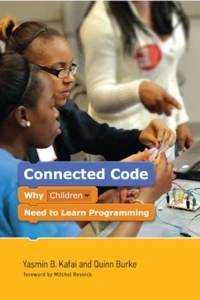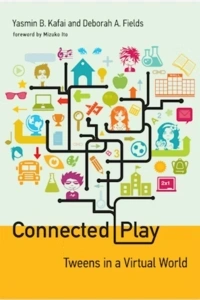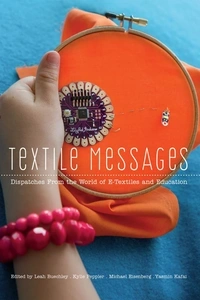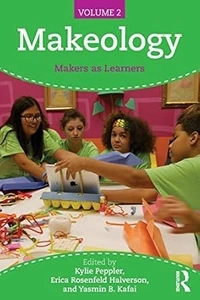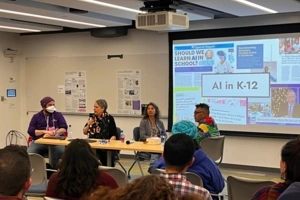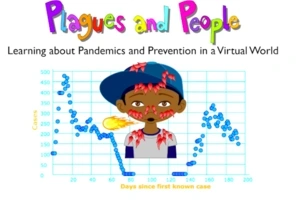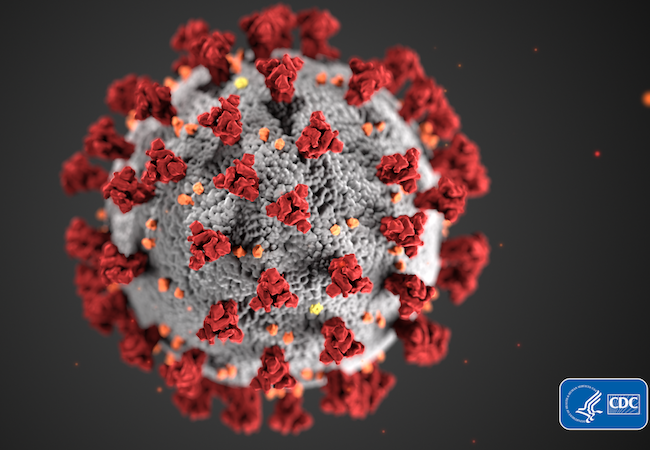Biography
Yasmin B. Kafai is the Lori and Michael Milken President’s Distinguished Professor at the Graduate School of Education, University of Pennsylvania, with a secondary appointment in Computer and Information Science. A leading learning designer and researcher, she develops online tools, projects, and communities that foster coding, critical thinking, and creativity. With colleagues at the Massachusetts Institute of Technology (MIT), Kafai helped develop and research Scratch, the widely popular programming language and community now used by over 150 million young people worldwide who have posted over 1 billion projects. Her current research investigates how youth develop AI literacy by designing their own generative language models, called babyGPTs, and by engaging in auditing AI systems to identify bias and harmful outcomes. Additionally, she has pioneered the use of electronic textiles to introduce computing, engineering, and machine learning in high school classrooms as part of the nationwide Exploring Computer Science curriculum. She has written and edited books for MIT Press in addition to several national policy reports. Her award-winning work has received generous funding from the National Science Foundation, Spencer Foundation, MacArthur Foundation, and industry sponsors IBM and Google. Kafai earned her doctorate in education from Harvard University while working at the MIT Media Lab. She is an elected Fellow of the American Educational Research Association and the International Society for the Learning Sciences.
In her book series on youth digital media, she unveils the connections between playing online, learning programming, and making games for more constructive and creative participation in networked communities. With Connected Play: Tweens in a Virtual World, written with Deborah Fields, she investigates what happens when kids play in virtual worlds, how this affects their offline lives, and what this means for the design of educational opportunities. A second book, Connected Code: Why Children Need to Learn Programming, written with Quinn Burke, examines the downfall and comeback of programming and connects coding to design and participation in digital media cultures. The third book, Connected Gaming: What Making Video Games Can Teach Us about Learning and Literacy, also with Quinn Burke, looks at constructionist approaches to serious gaming and proposes new directions for educational gaming.
Other publications include co-editing Textile Messages: Dispatches from the World of e-Textiles and Education, focused on the emerging field of electronic textiles for learning about circuitry and programming; the two-volume series Makeology: Makerspaces as Learning Environments (Volume 1) and Makers as Learners (Volume 2) that examines the growing maker movement in K–12 education; Diversifying Barbie and Mortal Kombat: Intersectional Perspectives and Inclusive Designs in Gaming and Beyond Barbie and Mortal Kombat: New Perspectives on Gender and Gaming that discuss developments in equity and education in gaming; and The Computer Clubhouse: Constructionism and Creativity in Youth Communities, which presents an overview and learning outcomes of the international network of community technology centers.
Dr. Kafai coauthored the 2010 National Educational Technology Plan for the United States Department of Education and wrote the 2006 synthesis report Under the Microscope: A Decade of Gender Equity Projects in the Sciences for the American Association of University Women. She also briefed the National Research Council for the 2011 report Learning about Science through Games and Simulations and was a contributing member of the National Research Council’s workshop series Computational Thinking for Everyone. For the academic community, she served as editor of the Journal of the Learning Sciences and president of the International Society of the Learning Sciences. Her community outreach includes a $25,000 Rosenfield Community Prize together with Youth Opportunities Unlimited and recognition by the City of Los Angeles for her mentoring partnership initiatives.
A graduate of the Technische Universität Berlin, she was awarded a DAAD fellowship to work with Elliot Soloway in computer science departments first at Yale University and then at the University of Michigan before attending graduate school at Harvard University. She worked with Seymour Papert and Idit Harel at the MIT Media Laboratory from 1989–1994 where she received a postdoctoral fellowship from the Nintendo Corporation. In 1994, she joined the faculty at the University of California, Los Angeles, and was a postdoctoral fellow of the National Academy of Education and a recipient of the National Science Foundation Early Career Award. Since 2008, she has been on faculty at the University of Pennsylvania. She is a fellow of the American Educational Research Association and the International Society of the Learning Sciences.
Education
- Ed.D. Harvard University, 1993
- Diplompsychologie Technische Universität Berlin, 1987
Areas of Expertise
- Constructionism
- Learning sciences
- Computer science education
- Equity and diversity
- Serious gaming
Awards & Honors
Links
Academic Programs
Penn Chief Learning Officer, Ed.D.
Teaching, Learning, and Leadership, M.S.Ed.
Teaching, Learning, and Teacher Education, Ed.D.
Teaching, Learning, and Teacher Education, Ph.D.

